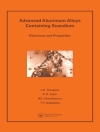The Middle East conflict system is perhaps the world’s most important and intractable problem area, whose developments carry global consequences. An effective investigation of the context and change in the region calls for a melding of academic approaches, methods and findings with policy oriented needs.
The Israeli Conflict System brings together leading conflict scholars primarily from political science, applying a range of advanced, rigorous analytic and data-gathering techniques to address this single empirical domain—the contemporary Israeli Conflict System. Recognising the causal complexity of this conflict system, the volume’s central theme is that the system’s current conditions are best understood in their broader temporal/historic, cultural/linguistic, and spatial/geographic contexts. Through the lens of economic, geographic, historical, linguistic, and political analyses, and the application of data analysis, experiments, simulations, and models of rational choice, this volume shows how diverse disciplinary perspectives and methodologies can complement each other effectively. In this way, its chapters provide a model for the integration of factors and contexts necessary for understanding contemporary world politics, and a sampling of theories, approaches, and methods that are applicable, useful, or valid under different conditions.
This book offers a cutting-edge resource for scholars and students of Political Science, International Relations, Conflict Studies and Middle East Studies.












